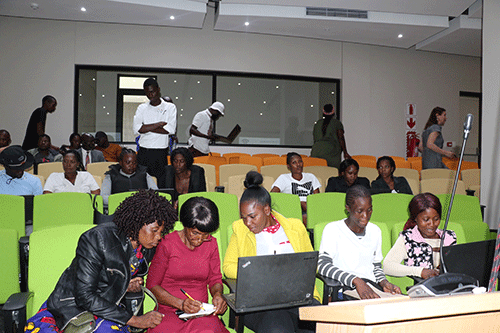Marythar Kambinda
Katima Mulilo – The information ministry supported by the AU-EU Digital Hub in the Zambezi region recently conducted a two-day digital literacy programme in the region, where about 50 people received training on digital literacy.
The aim of the two-day training programme was to increase digital literacy in rural areas.
Speaking at the training, Randel Länts, a senior expert on change management at E-Governance Academy in Estonia, said the aim of the first day of training was to find enough people with digital skills who would be able to train their people in the communities.
“This simply means that we are empowering people to do the training themselves,” he said.
The second day of training taught ordinary people how to acquire certain skills and certain aspects of digital life.
Länts stated that the plan is to give people enough skills when they are conducting the training themselves within the communities.
“They are taught about how to correspond with an email, how to browse as well as what to browse, how to be safe online and how to create a curriculum vitae for a job application – to name a few.”
Länts said if they can teach even just one person how to create an email address or how to browse, that particular person can teach others within the community, then this is already a success.
“We’ve seen true joy in people after they learned how to create their own email or send an email,” he said.
The team has so far been to Ondangwa in the Oshana region as well as Omaruru in Erongo region.
* Marythar Kambinda is a MICT information officer in the Zambezi region.


